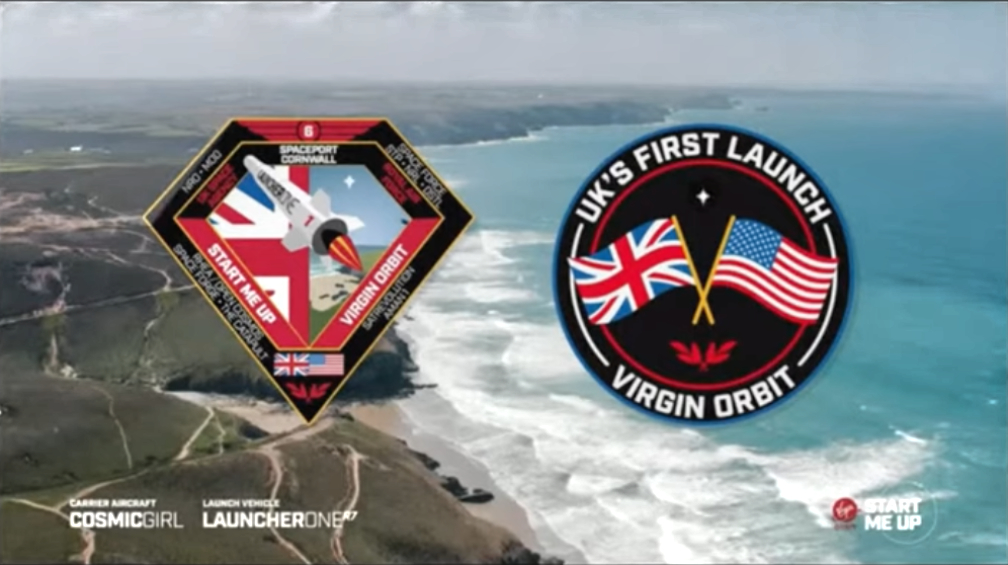
Certainly not a ‘moment to remember‘ debut for Virgin Orbit and Virgin Orbit National Systems, as the company’s initial, rideshare launch from the United Kingdom has been unsuccessful.
With Cosmic Girl taking off from Spaceport Cornwall, 25 minutes after the 10:01 p.m. lift off of the LauncherOne rocket carried beneath the customized 747 aircraft, an anomaly occurred and the mission had to be aborted, sending the rocket and the payload of nine satellites into the Earth’s atmosphere where they were destroyed.
The disappointment was quite evident for the thousands of spectators viewing the launch, all hoping for a victory for the UK as a nation vying for premiere launch status among the world’s space faring nations.
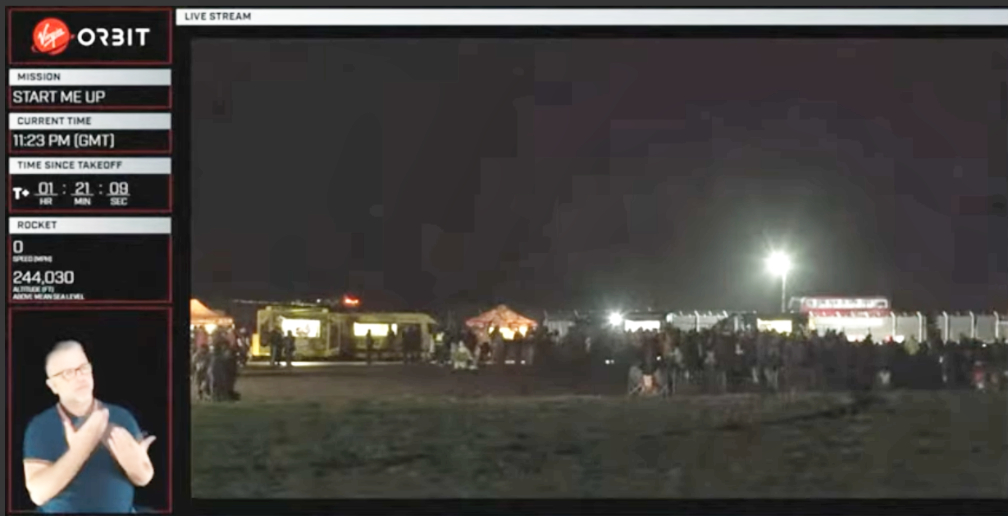
The Cosmic Girl 747 landed safely back at Spaceport Cornwall.
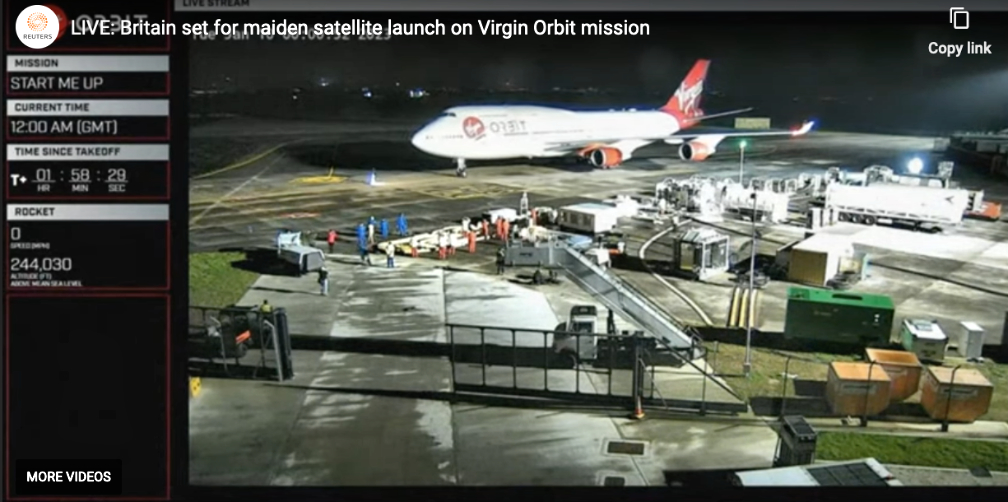
The comments from Virgin Orbit National Systems / Virgin Orbit close to a half-hour after claiming on-orbit victory was that an anomaly had actually occurred, one that had prevented the ascension to orbit of the rocket and satellites and the launch had failed to come to fruition.
Original news posting…
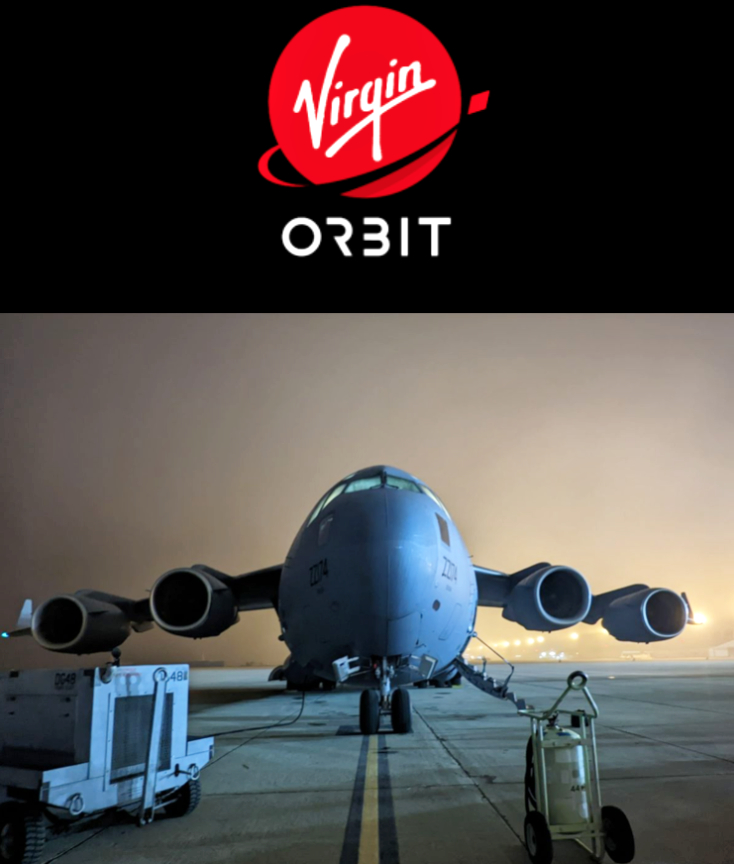
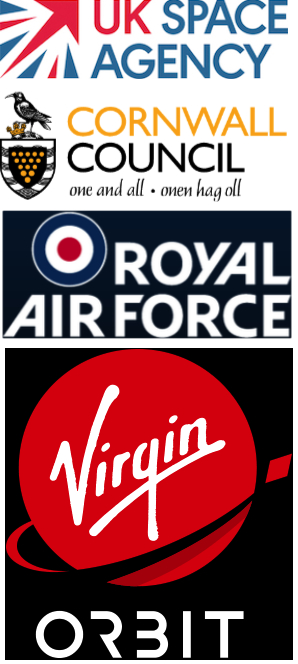
Partners for the United Kingdom’s first orbital launch announced that the initial window for the historic Start Me Up mission will officially open on Monday, January 9th at 22:16, UTC, with additional back-up dates continuing into mid- and late January — Start Me Up is a collaborative effort between the United Kingdom Space Agency (UKSA), Cornwall Council, the Royal Air Force (RAF St Mawgan), and Virgin Orbit (Nasdaq: VORB).
The Start Me Up mission will carry satellites from seven customers to space, including commercial and government payloads from several nations as well as a collaborative US-UK mission.
The LauncherOne system that will conduct the mission is now mated to its carrier aircraft, a Boeing 747 dubbed Cosmic Girl, at Spaceport Cornwall. Virgin Orbit’s LauncherOne system successfully completed an end-to-end launch rehearsal, taking the integrated system through to the loading of propellants and proceeding through terminal count, resulting in the verification of the health of the system and readiness of the team.
Given the number of “firsts” being executed for this launch – the first orbital launch from UK soil or from anywhere in western Europe — Virgin Orbit and its partners will maintain a conservative posture with regard to system health, weather and all other elements of scheduling.
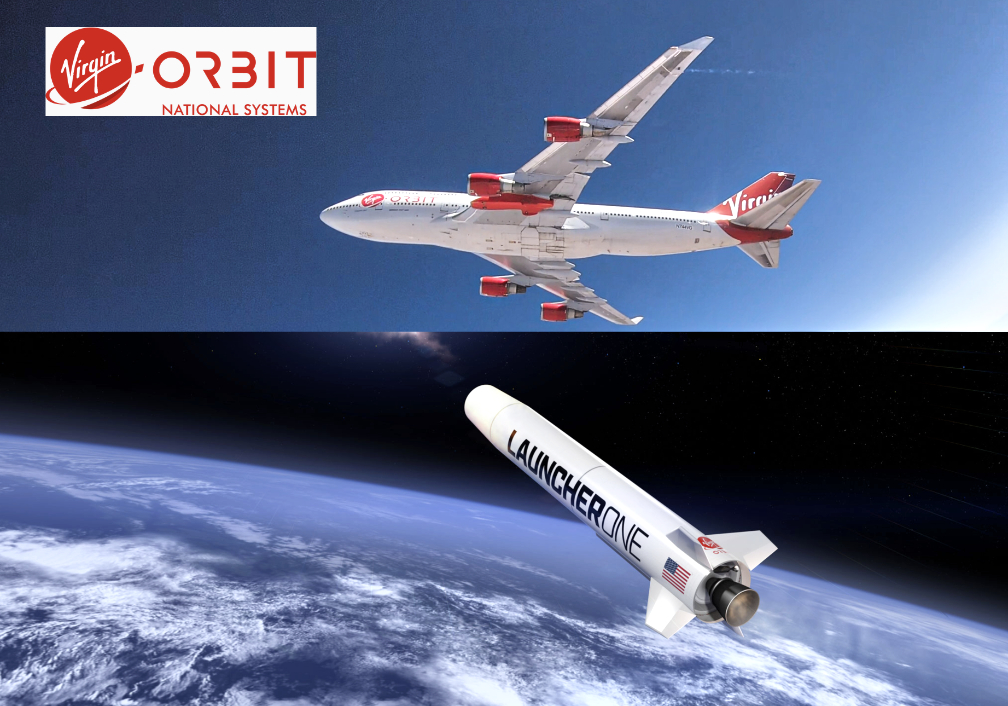
Spaceport Cornwall received the United Kingdom’s first spaceport license from the UK Civil Aviation Authority (CAA) in November of 2022. In late December of 2022, Virgin Orbit was issued first-of-their-kind launch and range control licenses, which ensured all regulatory, safety, and environmental requirements have been met. This week, the CAA announced that all of the satellites flying on this mission have received their licenses as well.
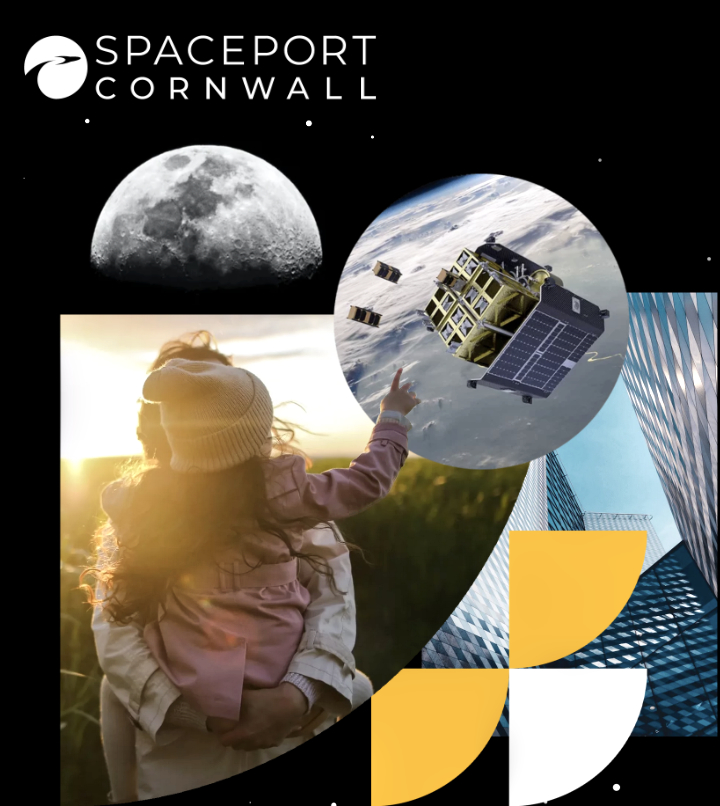
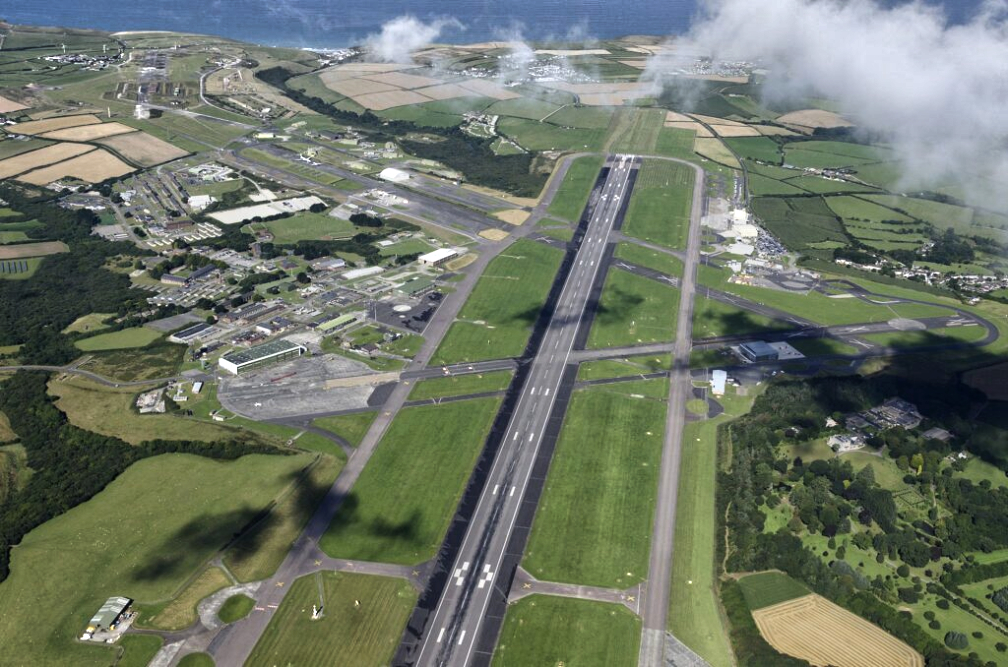
The forthcoming mission from Cornwall will contain many firsts: the first orbital launch from the United Kingdom, the first international launch for Virgin Orbit and the first commercial launch from western Europe.
Start Me Up will be the fifth consecutive Virgin Orbit launch to carry payloads for private companies and government agencies. All of the prior 33 satellites were carried by LauncherOne to their precise desired orbit, while demonstrating the ability to fly through and above inclement weather, integrate rapid-call up payloads, and reach a broader range of orbits than would be possible from a traditional ground-launch system.
The launch was acquired by the National Reconnaissance Office (NRO) from Virgin Orbit National Systems, a Virgin Orbit U.S. subsidiary serving classified customers, as the first task order on NRO’s Streamlined Launch Indefinite Delivery, Indefinite Quantity Contract, or “SLIC.”
The missions of the satellites span a wide range of activities aimed at improving life on Earth, including reducing the environmental impact of production; preventing illegal trafficking, smuggling, and terrorism; and a host of national security functions. The full Start Me Up manifest…
IOD-3 AMBER (aka IOD-3)
Developed by Satellite Applications Catapult (“SA Catapult”) and Horizon Technologies and built by AAC Clyde Space, all based in the U.K. IOD-3 Amber is expected to be the first of more than 20 Amber satellites to provide space-based Maritime Domain Awareness (MDA) data to users.
Prometheus-2
Two cubesats owned by the U.K. Ministry of Defense’s (MOD) Defense Science & Technology Laboratory Dstl. These satellites, co-funded with Airbus Defence and Space who are designing them jointly with In-Space Missions, will support MOD science and technology (S&T) activities both on-orbit and on the ground through the development of ground systems focused at Dstl’s site near Portsmouth.
CIRCE (Coordinated Ionospheric Reconstruction CubeSat Experiment)
CIRCE is part of a joint mission between the U.K.’s Defense Science and Technology Laboratory and the U.S. Naval Research Laboratory (NRL).
DOVER
Developed by RHEA Group in the UK, it is the company’s first satellite in its 30-year history. The satellite is being co-funded through the European Space Agency’s (ESA) Navigation Program (NAVISP) and built by Open Cosmos of the United Kingdom. DOVER is a smallsat that was created as a pathfinder for resilient global navigation satellite systems.
ForgeStar-0
Developed by Space Forge of Wales, the satellite is a fully returnable and reusable platform to enable in-space manufacturing. This launch will be the first for the company’s ForgeStar platform and will test future returns from space technology.
AMAN
Oman’s first orbital mission, it is a single EO satellite meant to demonstrate the future feasibility of a larger constellation and was developed after a memorandum of understanding among the Sultanate of Oman, Polish Small Satellite manufacturer and operator SatRev, Poland-originated AI data analytics specialists
TUATARA, and Omani-based merging technology innovator ETCO.
The agreement includes additional planned small satellites, including this, the first in Oman’s history.
STORK-6
Stork-6 is the next installment of Polish Small Satellite manufacturer and operator SatRev’s STORK constellation. Virgin Orbit previously launched two spacecraft in this constellation on a previous launch and looks forward to continuing to launch SatRev’s STORK spacecraft in the future.
Virgin Orbit’s LauncherOne rockets are designed and manufactured in Long Beach, California, and are air-launched from the wing of a converted Boeing 747-400 aircraft named Cosmic Girl. Virgin Orbit’s unique air-launch platform can take off from any runway long enough to handle a Boeing 747. Not reliant on traditional spaceports that support vertical launches, this capability creates a new level of mobility for satellite launch, thereby enabling sovereign launch capability in new markets.
Ian Annett, Deputy CEO at the UK Space Agency, said, “We are entering a new era for space in the UK with the first ever satellite launch from UK soil and from Europe. This is a significant landmark for the nation, the UK Space Agency and for all those who have worked so hard over many years to make our ambitions to create a commercial space launch capability a reality. The development of new orbital launch capabilities is already generating growth, catalysing investment and creating jobs in Cornwall and other communities across the United Kingdom. This will lead to new careers, improved productivity and inspire the next generation of space professionals, and this is just the beginning. I look forward to seeing more launches from other UK spaceports over the next year, putting us firmly on the map as Europe’s leading destination for commercial small satellite launch.”
Dan Hart, Virgin Orbit CEO, said, “After ensuring that every technical aspect is sound and every regulation and code has been satisfied, it is gratifying to see this historic endeavor on the verge of coming to fruition. This launch represents the opening of a new era in the British space industry and new partnerships across industry, government, and allies. Space is already responsible for tens of thousands of jobs across the UK, the global industry is growing quickly, and so is the potential. And this launch is demonstrating that with the Virgin Orbit LauncherOne system an airport can become a spaceport that sends humankind’s innovations on their journey.”
Melissa Thorpe, Head of Spaceport Cornwall, said, “This is a phenomenal moment with incredible international collaboration. Virgin Orbit, the UK Space Agency and all of our partners are breaking new ground to transform access to space across the world from right here in Cornwall. My team at Spaceport Cornwall have worked so hard to get this far and we wish everyone the best of luck as the launch window opens, we are ready.”
Tim Johnson, Director for Space Regulation at the UK Civil Aviation Authority, said, “Effective licensing forms an integral part of UK space activity, and with public safety at the heart of our decision making, we’ve worked with Virgin Orbit and Spaceport Cornwall to assess their applications and issue licences within our expected timeframe, putting the UK framework on a competitive footing with international space regulators. With all licences in place, Virgin Orbit and Spaceport Cornwall are now in a position to deliver a historic first orbital launch from UK shores. We’re proud to be playing our part in facilitating the UK’s space ambitions and enable this country to become a leading launch nation.”
